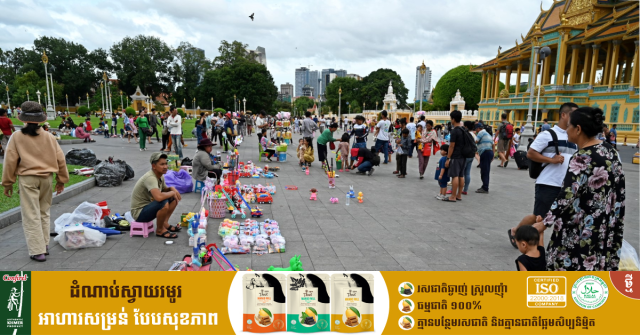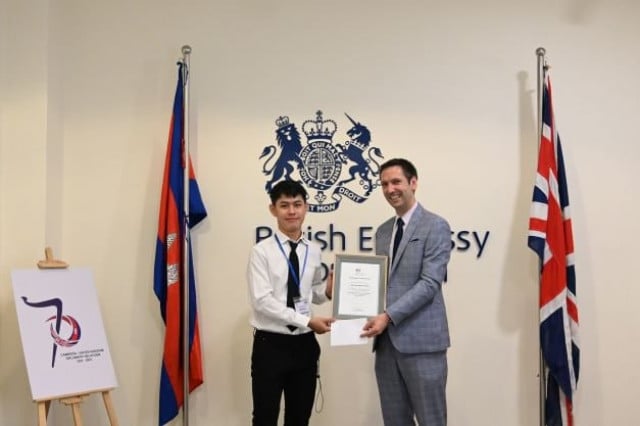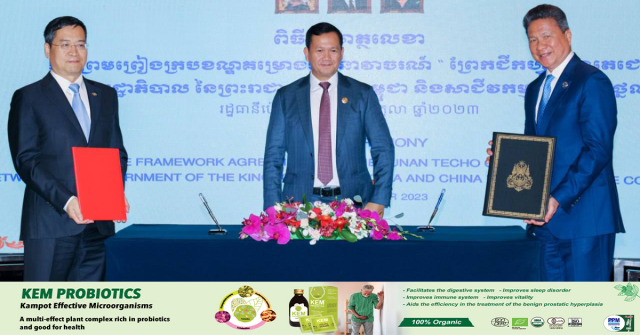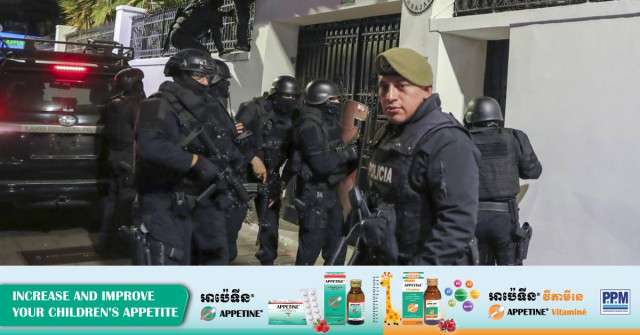To Reduce Crime: Help People Have a Good Childhood, Says a Police Officer

- By Nary Savath
- September 24, 2023 7:00 PM
When asked "What is the greatest challenge you face as a police officer?” I have to say violence. Violence can be physical, emotional and sexual. All these forms of violence can be found in rural Cambodia.
Having more police officers and putting more people in prison is not the answer. That is like saying we should have more doctors and hospitals without considering how to try to stop people from getting sick in the first place.
Criminals are sick people; it is just a different form of sickness than physical illness. Regarding physical condition, there is a lot of research as to why people get sick and a lot of efforts made to try to stop people getting sick in the first place, such as the adoption of vaccines.
So where is the research into why people become criminals, and where is the "crime vaccine”?
I am sorry to say I am unaware of any "crime vaccine," but I am aware of some research as to why people turn into criminals.
So ask yourself, if we know why people become criminals, then why don't we do something about stopping them from becoming criminals?
We don't try to deal with the issue or even acknowledge why people become criminals in the first place because it is a really a “hard nut to crack” as the saying goes: It is considered in the “too hard basket.”
It requires a societal change as it is most often the cycle of crime and violence that needs to be broken.
True, we can acknowledge that the Civil War [in the 1980s, which followed the defeat of the Khmer Rouge regime in January 1979] has affected how we got to where we are now. But it is essential not to use the Civil War as an "excuse,” but it is part of the reason. There is a difference between “reason” and “excuse." An excuse is trying to justify bad behavior. A reason is acknowledging the cause of a problem, which is then the basis for looking for a solution.
Civil war or otherwise creates trauma in a population. There is a lot of research on this problem.
We can define trauma as follows: Going through stressful, frightening, or distressing events is sometimes called trauma. When we talk about emotional or psychological trauma, we might mean situations or events we find traumatic and how we're affected by our experiences.
Severe trauma can be “inter-generational," that is, it is passed on from parent to child.
Research on the descendants of the victims of the Nazi regime Holocaust—during which around 6 million Jewish people were killed—has shown the same emotional responses and personality traits in the grandchildren of these victims, which the victims had exhibited as a direct result of their experiences. The grandchildren, of course, never experienced the trauma directly.
There are some evolutionary reasons why this is so. Then, it should be expected that the trauma of the Civil War in Cambodia still exists in the younger generations.
And this, I will take as my starting point. But this is a “reason,” not an “excuse.”
So, if we know some of the reasons for the violence, what can be done to "fix the problem”?
Two words are easy to say, “education and awareness,” but are very hard to implement.
In most cases, criminals are not born, they are made. And where is the foundation for becoming a criminal: childhood.
We are who we are as adults because of the sort of childhood we have had.
You can take the best genetics and give that child a terrible childhood, and then they will be a failure and most likely a criminal.
Give an average genetically endowed child a great childhood, and you will have a very happy and effective adult, a success story.
Therefore, what happens when children with a terrible childhood have children themselves? The likelihood is that they will treat their children similarly to how they were treated during their own childhood. Hence, we have what we call "the cycle of violence.”
What we all must do if we want to live in a better society with less crime is to break this cycle of violence.
As I mentioned, the solution lies in education and awareness.
It is not even a matter of material well-being. Wealth does not automatically infer a great and happy adulthood for a child.
However, there are primary material needs that all children need. These are proper food—and this should include breastfeeding—a secure home and kept from being exposed to violence.
There is a saying that "It takes a village to raise a child," meaning that it is in the broader society that the child is raised, and that can have a positive or detrimental effect on who this child will be as an adult.
I have laid the groundwork to define why people often go down the criminal path.
So, in practical terms, what can be done?
In terms of awareness, if we were to have effective and well-educated "school counsellors" whose job would be to work with the schools and become friends and confidants of the children in a school so these children can feel secure speaking to them when they feel they have troubles or problems they cannot understand or solve themselves. This could be a home/parental problem, or it could be a school bullying problem. In the case of a school bully—or even an adult bully—this indicates that something went wrong in their childhood, and so these people should not be considered evil, but instead the question should be, "I wonder what went wrong in your childhood?”
Should a school counsellor become aware of a child living in an abusive home environment, the school counsellor should make an appointment to see the parents to discuss what is going wrong.
This approach should not be judgmental or with threats as to what might happen if they do not stop the bad things they are doing, but rather to try and be educational and help these parents see what has happened in their younger lives that they may be perpetuating in a “cycle of violence.”
The best people to raise a child are his parents, given they can be good parents. So, the school counsellor's role is to educate the parents while always being ready to listen to the child.
If we can undertake this sort of initiative, then the level of crime of all types will fall in Cambodia, and the society will become much happier and contented.
In terms of cost/benefit analysis, implementing a school counselling system is a clear winner. Each $100 spent will return thousands if not tens of thousands of dollars. The cost of crime is enormous in terms of police, court and prison services. But perhaps the most significant cost is the loss of a productive human being, not to mention the destruction of someone's life, through no fault of his or her own.
The adage "they are old enough to know right from wrong" is fatally flawed. This is what people who consider themselves to be "right thinking" want to think, but nothing can be further from the truth. Humans tend to behave similarly when presented with a similar environment. Have you ever heard someone with a bad outcome say, “But I didn't think," and that will be true? They will have acted out of deep-rooted, from childhood, emotions.
A further observation is that intelligence is not fixed. In India, a study was done of sugar cane farmers who get their income in one big lump once a year. An IQ test was administered before their harvest, when they were in debt and after their harvest, when they had been paid, and all the debts had been cleared. Test results showed a significant difference in the IQ levels before and after payment. Poverty and the stress that goes with it alter how people think. So, it is entirely wrong for people to sit in comfortable chairs with full stomachs to judge the bad decisions of those who are less fortunate. That is without considering the harmful effects of a poor diet in childhood on a person.
I am a police officer at the Preah Vihear Police Station. Coming from a poor farming family, I am a single mother of a 6-year-old daughter receiving support from her New Zealand father. Only because of my daughter's father have I been helped to gain the insight, knowledge and understanding I now have. I have been able to apply all I have learned about childhood development in raising my daughter, who has always wanted to be a doctor from a very early age. I'm unsure where this has come from, but my daughter is determined to be a doctor. Maybe my daughter is a testament to what a good childhood can produce.















